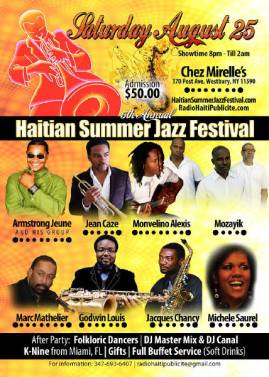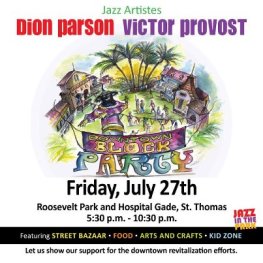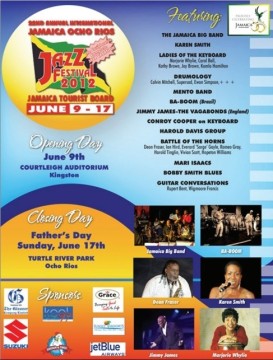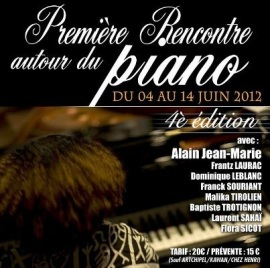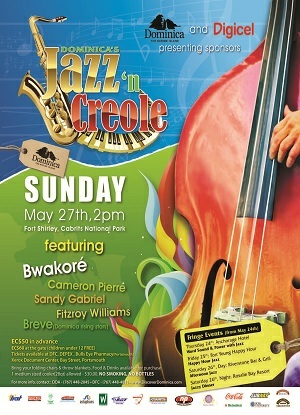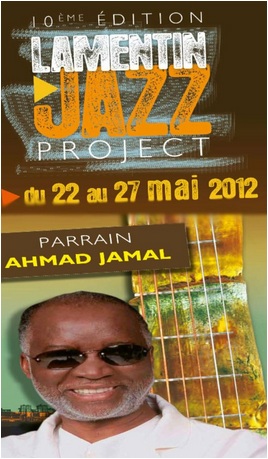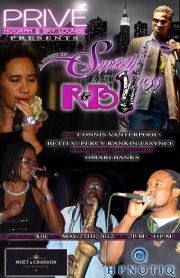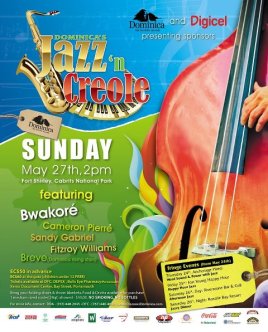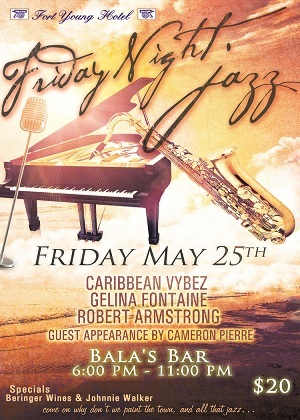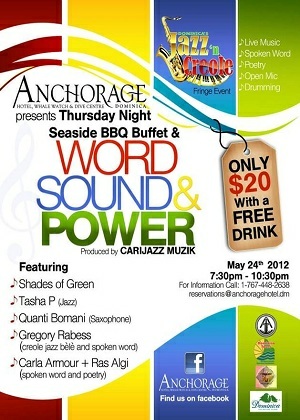What’s not to like about Cameron Pierre’s newest, Radio Jumbo?
January 29, 2012 Leave a comment
Dominican musicians, home-grown and foreign based, have for decades flocked into label studios in Barbados, Trinidad, the French Departments of Guadeloupe and Martinique, North America and the UK as well as home studios on island to produce everything from Cadence-lypso, Calypso, Country and Western, Bouyon, Dub Poetry, Folk (Chorale and Jing-ping), Pop, Reggae etc. Taken together, the artists have made the Nature Isle a fountain of musical innovation and transformed its shores into a musical capital of sorts.
But there is one style of music that Dominica is not known for…Jazz. All that changed in the latter half of 2011 with the release of Radio Jumbo, a guitar-led date by Dominican-born, UK-based guitarist Cameron Pierre. Maybe not coincidentally, this ground-breaking CD is a collaboration between Pierre and Martinican pianist Mario Canonge, Martinique having helped wean Dominica’s Cadence-lypso, create a much-needed gateway to the French market and launch its subsequent ingestion internationally.
CAMERON PIERRE
Radio Jumbo
featuring Mario Canonge
(Destin-e World Records 77754462011)
From the first spin of Radio Jumbo, it’s impossible (I say, impossible) to miss the conversational style that Cameron Pierre eschews on his axe. That said, take it from me, you do not want to be on the receiving end of a diatribe by the likes of “Ma Molly”. Don’t believe me? Take a listen to the transcription of said telling off by Pierre whose flurries of single notes and chords, configured into shifting patterns and time signatures, at once frenetic or otherwise stilted; and those supple runs up and down the fret board, never straying too far from the melodic hook which he deposits in the middle of his conversation.
Pay attention and you won’t miss Mario Canonge, egging on the leader by just doing the simple things right, that is not letting the intensity drop when Pierre clutches to change gears. Canonge adeptly fills in the brief spaces between Cameron’s phrases by slightly raising his volume, hinting to the soloist as it were, that he is ready to enter the fray…whenever.
Get into the zone and the strings will seep unobtrusively into your consciousness. Largely remaining flat under the rhythm – the violins, viola and cello bubble up here and there – adding harmonic fills that make you think this recording could not possibly succeed in their absence. This is important for it tells you that the string quartet is not on the date as window dressing.
Being aware of Pierre’s reverence for the music of Malavoi, Canonge’s alma mater by the way, it is to be noted that by suppressing the strings on “Radio Jumbo”, Pierre does well not to copy Malavoi’s typically predominant string arrangements.
The mark of a well-thought out record is in the style: is it discernible on Track 1 and manifest through Track 10? “Radio Jumbo” is constant throughout, due in large measure to the virtuosity of Cameron’s featured soloist in Canonge who throws his enormous arsenal of chops at the project.
The pianist can be heard essaying pop-like strums on “Big Foot”, rolling Blues figures on the title track and hints of avant-garde measures on both. With regard to the latter, the left hand is not used merely as a bearer of chords. But because the track, “Radio Jumbo”, is based on traditional Antillean dance, the integral element of which is always the drum, Canonge puts on his percussive hat here.
Canonge does not stop there though; he goes on to inject some Salsa sensibilities into this performance as is pretty much the norm in the French Caribbean where Latin is more prominent in the language of music when compared to the English-speaking countries like Dominica and St. Lucia where French patois is widely spoken.
This brings us to the concept behind this recording. As Pierre explains – and I do recall – “Radio Jumbo was a French (Martinique) radio station based in Dominica [that] flooded its listeners with heavily-syncopated beats, Konpa from Haiti, Mazouk and Beguine from Martinique, Kwoka Drums from Guadeloupe, Merenge from the Dominican Republic and Columbia, Afro Cuban from Cuba and Cadance Lypso from the Commonwealth of Dominica…” Cameron’s stated intention, therefore, was to draw from these formative influences in defining his CD. By the evidence on this outing, Canonge got it. So too does drummer Wesley Joseph.
Joseph under girds “Radio Jumbo” with the Beguine shuffle accented on the snare drums, the Quadrille tambou via “Traditional”, Kadans hi-hats sans the off-beat snare on “Solomon” and with the typical clave rim shots added on “Like I Remembered”, “If Only”, “Room 115” and “Another Star.”
“Traditional” and “Solomon”, taken together, are arguably Pierre’s way of paying homage to the core rhythms that shaped his musical identity early on in Dominica. His approach from song to song varies. In so doing, he avoids replication while adding something fresh to the tracks.
“Traditional” is for the most part a narrative of headline issues of Dominican life in his youth. “Solomon“? Pierre stumps those of us who know the hook of this trad song by delaying the statement of the melody with a faux intro for a minute-and-a-quarter only to deviate from it just as quickly. However, it is the inventiveness of this piece that is really off the chain.
To balance out the album – and I might add, for good measure – Pierre throws in an all-out vocal by Michele Henderson, arguably the most outstanding Dominican female of the modern era, doing Stevie Wonder’s “Another Star” and a straight rendition of “Soul Eyes” [Mal Waldron], showing off the guitarist’s tender and contemplative side.
Don’t forget the strings, which are ever-represent, lingering appropriately under the mix – outside of providing strong harmonic counterpoint – with bassist Bailey and percussionist Gamble for company.
Credit must of necessity go to engineers Courtney Pine and Cameron Pierre for dulling Gamble’s cowbells and Courtney Pine’s keyboards (Track 4) to distinguish Pine’s playing from that of Canonge’s acoustic piano and capturing Cameron’s picking as he switches from a soft and mellow tone to sharp and edgy, from guitar to banjo.
While writing this review, I listened to Radio Jumbo for six hours straight, hoping to pick up on any nuances that might be lost in the excitement of the first few spins. You may not be so inclined, but beware, you will have a hard time hitting either pause or stop once you strike play. Go ahead…prove me wrong.
Extra resources: Radio Jumbo preview
